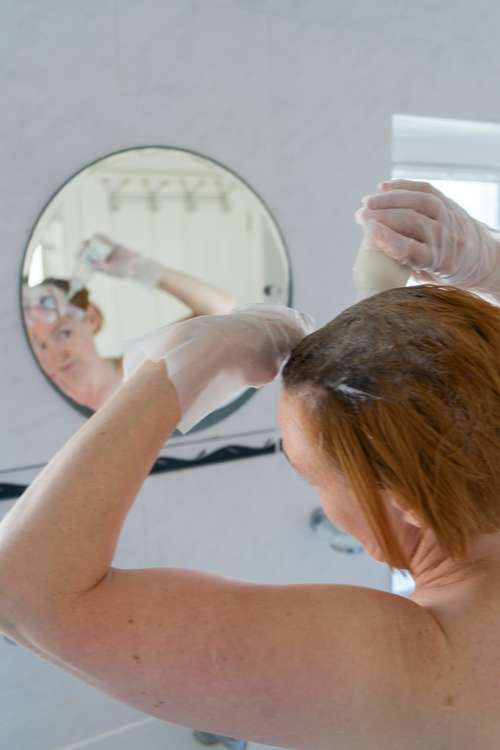Women dealing with hair loss may often find themselves at a crossroads, questioning whether the various treatments available are really going to work. It's a dilemma filled with hope and frustration as each remedy promises a breakthrough. Many women have experienced bouts of thinning hair and are continually looking for a solution that finally makes a difference. The emotional toll of battling hair loss can be significant, prompting a mix of optimism and skepticism in many testimonials shared online and in clinics. With so much conflicting information, it's natural to ask: do hair loss treatments for women actually work?
In the next few paragraphs, we'll dive into both the science behind many of these treatments and the expert opinions on their true effectiveness. Whether you're a seasoned patient or just starting your search, this article will help sift through the hype to clarify what might truly help in the quest for better women's hair care.
Understanding Hair Loss in Women
The journey to understanding female hair loss begins with knowing its many roots. It is not just about genetics; factors such as stress, hormonal imbalances, nutritional deficiencies, and some medical conditions can all contribute. This section explains the underlying causes behind hair loss in women, piecing together a broader picture to decide which hair thinning solutions for women might be appropriate.
Female hair loss is a multifaceted issue. Some women have hereditary conditions like female pattern baldness that lead to gradual thinning, while others may face sudden hair loss due to conditions like alopecia areata. In many cases, poor nutrition or high stress levels are unexpected culprits that also play a crucial role. Meanwhile, medical conditions like thyroid imbalances, polycystic ovary syndrome, or autoimmune disorders add complexity to an already challenging situation. Experts on hair loss treatments emphasize that identifying the cause is critical before attempting any treatment. The debate surrounds whether over-the-counter hair regrowth products for women or more conventional medical treatments are a better direction. After all, knowing what's causing the problem sets the stage for treatment success!
Even seemingly minor factors can lead to significant changes in scalp health. It reminds me of a well-tended garden: one needs proper soil, sunlight, and water for plants to thrive, just as proper nutrition and care are essential for healthy hair. With this analogy in mind, patients are encouraged to investigate their specific conditions thoroughly before diving headfirst into a treatment plan.
Home Remedies vs. Professional Treatments
Tossing around ideas on treatment options can be overwhelming, and many wonder whether simple home remedies can work as effectively as professional treatments. In this section, we compare tried and tested home-based treatments with the more conventional, medically endorsed solutions.
Home remedies to combat hair loss can include natural oils, herbal supplements, and dietary changes. Some women find comfort in using essential oils like rosemary or lavender, along with massaging the scalp to promote blood circulation. Although these remedies are less invasive and more affordable, evidence for their effectiveness is varied. A few individuals have witnessed modest improvements, but these changes often come gradually and are less pronounced compared to professional interventions.
On the flip side, professional treatments such as minoxidil, laser therapy, and even hair transplant procedures have a more robust scientific backing. Clinical studies have shown that these methods can bring about measurable improvement in hair density over time. However, as many experts on hair loss treatments have pointed out, the outcome differs from one woman to another. The effectiveness of hair loss treatments depends a great deal on how early the intervention began and whether the root cause of the hair loss has been correctly addressed.
The conversation becomes even more interesting when you realize that the line between home remedies and professional solutions sometimes blurs. For example, some over-the-counter hair regrowth products for women balance both natural extracts and scientifically formulated compounds to promise visible results. The diversity of options available means it's essential for each patient to weigh their priorities—whether they prefer a natural route or want an approach backed by clinical trials.
Expert Opinions on Hair Loss Treatments
It’s not every day you get to hear what leading dermatologists and trichologists have to say about the landscape of women's hair loss solutions. In this part of our exploration, we review expert opinions on various methods and treatments available, supporting the conversation with some real-world examples from the field of women's hair care.
Experts stress that while some treatments may indeed slow hair loss and stimulate regrowth, expectations need to remain realistic. Many specialists agree that early intervention is key. For instance, dermatologists emphasize that once hair follicles have been severely damaged, even the best products might struggle to turn back the clock. They advise patients to integrate a holistic care plan that includes nutrition, stress management, and proper scalp care along with therapeutic treatments.
The debate continues among experts regarding the long-term success of various approaches. Some have noted that minoxidil, a well-known topical solution, has been a reliable workhorse for decades. Others lean toward more innovative methods like platelet-rich plasma injections, which show promise but still need wider acceptance. Almost every expert we consulted stressed the need for individual evaluations—what works well for one woman might not for another. This personalized approach is crucial, especially for conditions such as female pattern baldness treatment, where genetics play a major role.
Interestingly, many in the field underline that managing expectations is as important as the treatment itself. Some patients feel discouraged when improvements are too gradual, not realizing that nurturing your hair is a long-term commitment. In essence, the experts' advice boils down to keeping a balanced perspective—needle-sharp focus on one's overall health with realistic short-term targets.
Future of Women's Hair Restoration
Looking ahead, the future of hair restoration for women appears promising with a blend of innovative research and time-tested methods. This section provides an outlook on upcoming trends and potential breakthroughs in hair loss treatments for women.
The scientific community is exploring new frontiers in hair regrowth products for women. Advances in stem cell research and gene therapy are now hinting at treatments that go beyond just the surface. Some ongoing studies are looking into ways to regenerate hair follicles naturally, which might redefine women's hair health. It feels like we're on the brink of discovering a more permanent solution rather than just a temporary fix! Every new study adds a layer of hope for those who have long struggled with hair thinning solutions.
The increasing interest in personalized medicine could also herald a time when treatments are more finely tuned to an individual's specific genetic makeup and scalp condition. This tailored approach is promised to bridge the gap between the one-size-fits-all nature of many current therapies and the unique challenges each woman faces. Imagine a future where your treatment plan is as unique as you are—this is the hope many experts are working hard to achieve.
While no silver bullet exists just yet, the relentless efforts of researchers and clinicians are steadily pushing the boundaries of what we understand about female hair loss remedies. The traditional divide between home remedies and professional procedures is beginning to fade, paving the way for integrated approaches that blend natural components with advanced technology to bolster hair restoration for women.
In conclusion, the question of whether hair loss treatments for women actually work is multifaceted. With conditions ranging from genetic predispositions to lifestyle influences, expert opinions underscore the importance of a comprehensive, personalized approach. You have to remember—what works for one might not work for another. It’s crucial to start with a clear diagnosis and then explore both home-based and professional treatments to see which path suits you best. By staying informed and managing your expectations, you’re well on your way toward making empowered decisions for your hair health. Ultimately, while no treatment is a cure-all, a balanced approach could help you reclaim not only your hair but also a boost in confidence.




